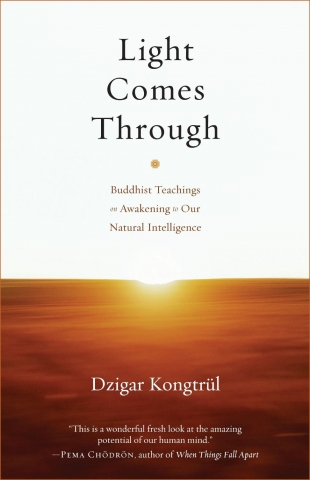"Our relationships with others extend far beyond the friends and relatives of this lifetime. Throughout our countless lives we have mingled with and bumped up against all kinds of beings in all manner of ways. We have touched them, cared for them, and nurtured them, but we have also milked them dry, eaten them, and stepped on them. We have offended and abused them both mentally and physically. Thinking only of ourselves, we have enjoyed great wealth at their expense and misused the power we were given. In doing so, we have influenced the course of their lives, and they have influenced ours. Most of these beings we don't even know and have never seen.
"Relationships are central to human existence. We rely on others for the food we eat, the clothes we wear, and all the information and knowledge we gather throughout our lives. Think about the planting, harvesting, and transportation of food. Many small insects die in the process of cultivating the soil. Pesticides harm wildlife such as fish and birds. Farm workers labor in the hot sun for small wages. Meanwhile, the mind of a farmer is filled with anxiety: 'Will the crops be good? Will the weather cooperate?' If we follow the news, we don't have to think hard about what goes into obtaining the fuel we use for farming machinery and transportation. The food we eat literally depends upon the blood, sweat, and tears of others. As Patrul Rinpoche says, 'All the factors we now see constituting happiness — food to eat, clothes to wear, and whatever goods and materials we can think of — are likewise produced through negative actions alone . . . Everything that seems to represent happiness today is, in fact, suffering in the making.' In this way, we are all part of the equation of suffering.
"We might try to turn a blind eye to the suffering of others and go about taking care of our basic needs, forgetting the whole idea of interdependence altogether. But is that even possible? And if it were, can you imagine leading a meaningful life just thinking about 'me, myself, I'? We may try to lessen the negative impact we have on our environment. We may become a vegetarian or take the bus rather than relying on a car. We may start our own garden or diligently recycle all of our containers. No doubt, respecting the natural laws of interdependence creates harmony in the world and helps us see a bigger picture than we would if we were only thinking of our own needs. But no matter how hard we try, we will always depend on others and we will always have to accept the bittersweet quality that pervades all of our relationships. Simply through the process of being alive we accumulate debt, and there is no escaping it.
"How does debt play out in our lives? Debt forms the basis of our relationships with others, some of which have a history we can trace and some not. We run into someone in the street who provokes a sense of fear in us and steals our wallet. Then, out of the blue, someone we've never met extends a great kindness. And, as for our children and spouse, how or why did these particular beings enter our lives in this intimate kind of way? Sometimes our children have such distinctive predilections and personalities that it makes us wonder where they actually came from. Some relationships are so volatile we seem to have little or no control over them — as if the dynamic controlled everything. Sometimes we come across people who seem unreasonably needy and expectant of our care, beyond our ability to help, even when we want to. And what about our enemies? We go to war with those we've never met — who, in turn, want to bring us down. What is the history we share with them? What is the debt we owe them? And what is the debt they owe us?
" 'Debt' is a heavy word. It brings to mind burden and guilt, credit-card bills and bank loans. No one ever wants to be in debt. Debt is a condition we find ourselves in. However, if someone were to save our life, for instance, our response would be one of indebtedness and appreciation. Of course, we would still encounter the weightiness of that debt, but most likely we would take that on without hesitation and try to repay this person's kindness in any way possible. Indebtedness toward this person would be a positive experience and bring out our most positive qualities, as it often does when we feel appreciation for our parents or anyone who has shown us care and has taken us under their wing.
"Indebtedness reminds us of our humanity. When we feel indebted, we think about the way we use things, consume things, and where they came from. We begin to notice the people we brush up against on the street each day: the lady at the bank, the waitress who serves us coffee, the UPS man who delivers our parcels. We start to pay attention to the people on the subway and the homeless living on the street. We start to think about the small everyday exchanges we have with others: How do they effect and shape our lives? These are not random happenings. They are fleeting expressions of our connectedness to others. When we have gratitude toward others, we feel touched by our relationship with beings living in this world of unpredictability and change. The fact that we accumulate debt by virtue of living in samsara is an unsolvable dilemma — something that can't be fixed. But our indebtedness toward others touches our heart and stirs our compassion, creating no room for indifference."
